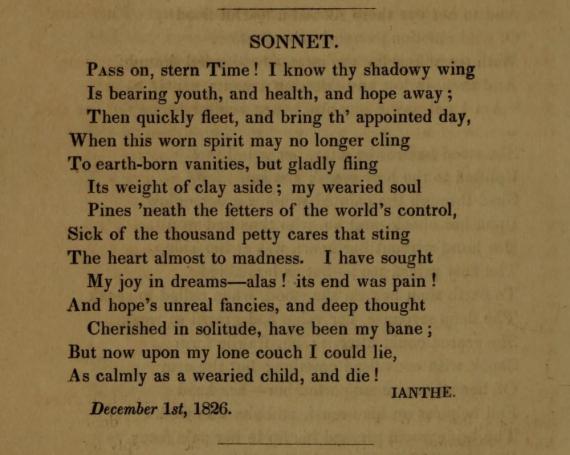IANTHE (Emma C. Embury, [1806–1863]), “Sonnet” The United States Review and Literary Gazette, Volume 1, Issue 3, March 1827
IANTHE (Emma C. Embury, [1806–1863]), “Sonnet” The United States Review and Literary Gazette, Volume 1, Issue 3, March 1827
SONNET.
PASS on, stern Time! I know thy shadowy wing
Is bearing youth, and health, and hope away;
Then quickly fleet, and bring th’ appointed day,
When this worn spirit may no longer cling
To earth-born vanities, but gladly fling
Its weight of clay aside; my wearied soul
Pines ‘neath the fetters of the world’s control,
Sick of the thousand petty cares that sting
The heart almost to madness. I have sought
My joy in dreams—alas! its end was pain!
And hope’s unreal fancies, and deep thought
Cherished in solitude, have been my bane;
But now upon my lone couch I could lie,
As calmly as a wearied child, and die!
IANTHE.
United States Review and Literary Gazette,
Boston: Bowles & Dearborn, 1827

